Kannada Movie Review: Sapta Sagaradaache Ello (Side A) feels like the beginning of something big for the classical romantic drama
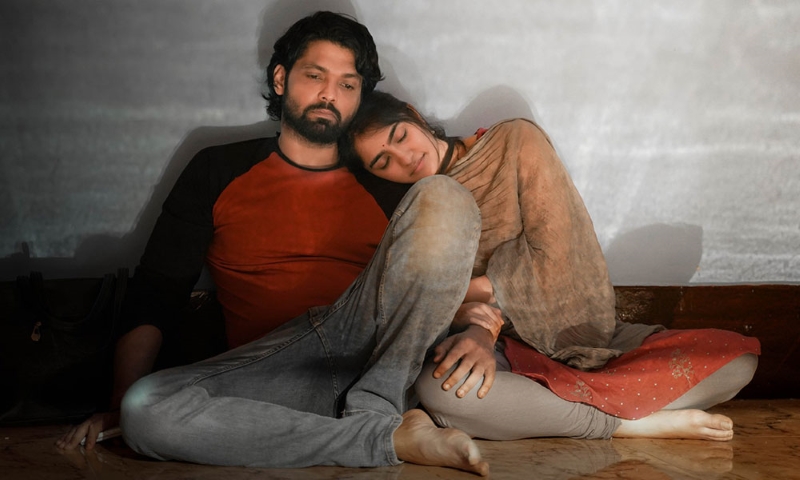
With the tragic romance seemingly deemed out-of-vogue by Hollywood and Bollywood alike, Sapta Sagaradaache Ello (Side A) stands a powerful announcement that the Kannada film industry may be here to fill the void. There’s a certain classical timelessness to the movie’s approach to romantic storytelling that registers as a feeling, right from the start. We’re introduced to the focal couple in the midst of a squabble that only goes on to underscore the way they perfectly complement each other. But there’s also a deep foreboding: as Manu (Rakshit Shetty) speeds down the road in his employer’s expensive Mercedes while Priya (Rukmini Vasanth) begs him to slow down – think of how many years of salary he would owe if he totaled the vehicle! – we know in our bones that this trip is headed towards an ominous destination. There’s a lump in our throat well before we even know why.
But the movie also departs from tradition where it counts. In the early going, we’re spared the long-winded and conventional romantic backstory in favor of smaller, tenderer moments that bring us into the relationship. There’s no meet-cute, no quirky foreplay – just human glimpses of a young couple navigating an authentic (albeit still cinematically heightened) lower-middle-class reality. It’s hard not to get invested in the two of them early on (even as he makes some classically bad decisions). Manu works as a driver for a wealthy family, while Priya is in her final year of school but fantasizes about becoming a famous singer. Shopping for an apartment, they one day decide to pose as a much more well-to-do couple and tour a lavish penthouse, lingering on the balcony together and dreaming of a prosperous future. She yearns to one day have the means to buy a home by the sea, where she grew up, but she’s also perfectly content with the more modest life that they’re building.
Telugu Movie Review: Kushi begins as a lightweight entertainment, ends as a nonsensical drag
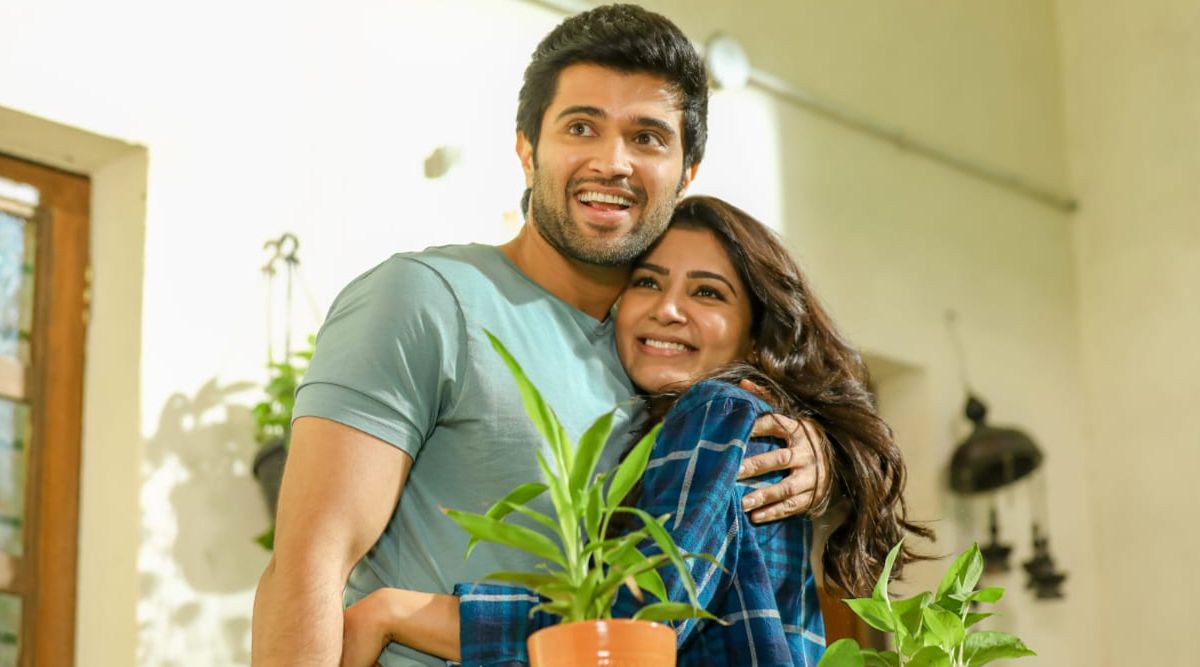
The first act of Kushi, while exceedingly absurd even by the standards of a Telugu comedy, is a pretty fun time at the movies. Protagonist Viplav (Vijay Devarakonda) is a complete dork who hasn’t exactly taken after his intellectual father (Sachin Khedekar), a noted professor and public figure widely known for his atheist views. Viplav, a young and hungry telecommunications worker, forgoes a local work assignment that would keep him in his cushy family digs in Hyderabad for a less desirable job near the tumultuous Pakistani border in Kashmir. Naively, he believes this will be a peaceful and idyllic setting to take in the mountain views and pretend he’s the star of a Mani Ratnam movie, with his repeated references to Roja generating several chuckles. When he gets caught up in warzone gunfire immediately upon arrival, it only momentarily kills Viplav’s wide-eyed buzz.
This is all played for exaggerated laughs, of course, as are Viplav’s first interactions with Aaradhya (Samantha Ruth Prabhu), who he initially assumes to be a Muslim woman from Pakistan. On the contrary, she’s a Hindu wearing a headscarf in the Islamic section of Kashmir as she travels to visit the Mamaleshwar Temple… but why would she ever let the instantly smitten puppy-dog Viplav know that she’s a potentially qualified match for him? Alas, Aaradhya’s attempts to tell white lies to ward off Viplav – namely, that she’s in town to find her orphaned younger brother Feroz – backfire when she underestimates him. A few days and an entertainingly ludicrous bike chase later, he’s brought her every boy named Feroz within a fifty-mile radius. The tone is not unlike that of the recent rom-coms McG has produced for Netflix.
Hindi Movie Review: OMG 2 falters in adapting the original scenario to a fit new social issue
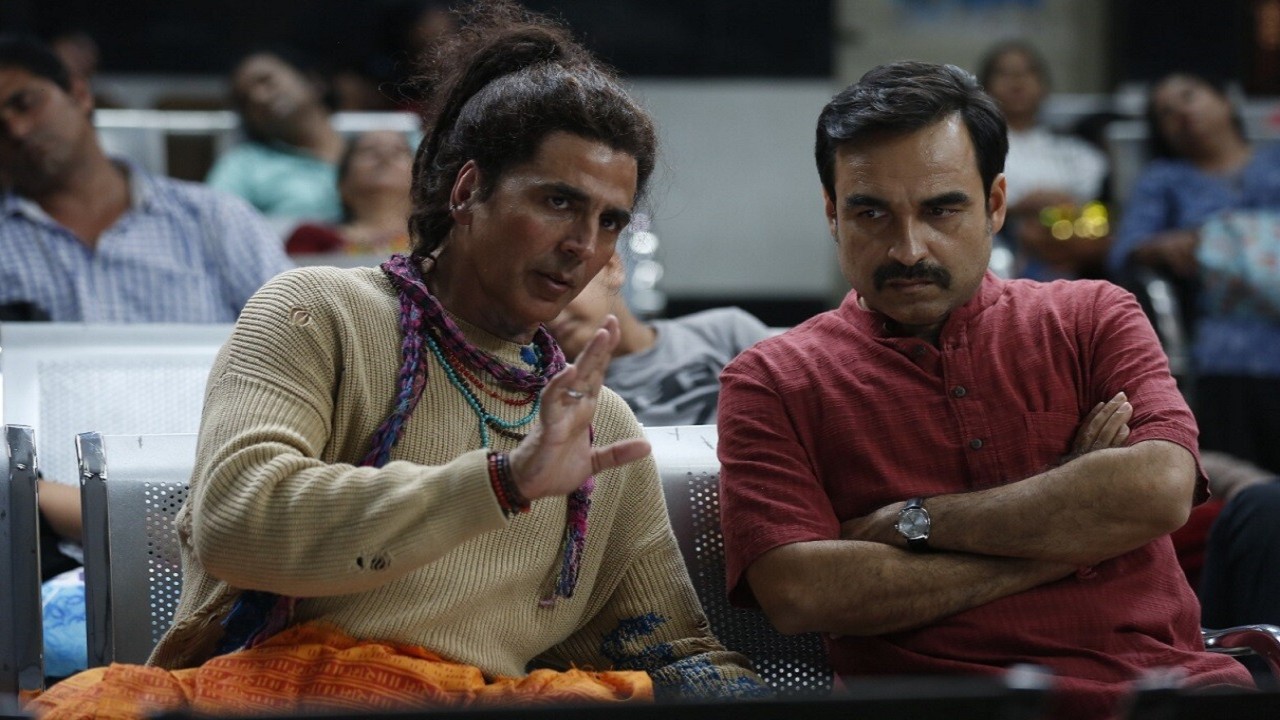
The first Oh My God!, released in 2012, was a flawed film with an intriguing high concept, adapted from the Gujarati stage play Kanji Virudh Kanji and its inspiration, the Australian film The Man Who Sued God. The premise: With the earthquake that destroyed his shop deemed an “Act of God,” atheist Kanji Lalji Mehta seeks to take the responsible party – in this case, the Lord himself – to court. This evolves into a clever morality play that sees Kanji going after the self-anointed religious officers in society who collect donations only to enrich themselves, rather than serve the will of God and help others. While the setup of Oh My God! was better than its execution, which took the story into heavy-handed and obvious directions, it had a thought-provoking central idea relating to organized religion’s role in upholding justness. Looking back, it’s no surprise that such an ingenious, easily articulated concept that hit at the zeitgeist yielded big box office returns.
Oh My God! was clearly intended to be a self-contained story, so it’s hardly a surprise that its connection to this decade-later sequel feels awkward at best. The only common ingredient between the two films is Akshay Kumar, who reprises his role as a divine messenger – this time as a manifestation of Shiva, while last time it was Krishna. But even this part of the sequel feels like it has been shoehorned in. Whereas Kumar came across as a true spiritual guide to Kanji in the first film, offering divine counsel in urging him to read the Gita, Bible, and Quran for answers to his predicament, here he takes on more of the role of a “fairy godfather,” providing convenient solutions for protagonist Kanti Sharan Mudgal (Pankaj Tripathi) whenever he reaches a seemingly unsurmountable obstacle. As such, the franchise’s entire notion of spiritual devotion becomes muddled; whereas the first film ultimately extolled the virtues of unconditional belief in God, here it would seem the takeaway is you only need Him when you’re in a pinch. And this is only the beginning of the story’s thematic confusion.
Hindi Movie Review: Gadar 2 smashes box office records while stoking controversy… but is the movie itself any good?
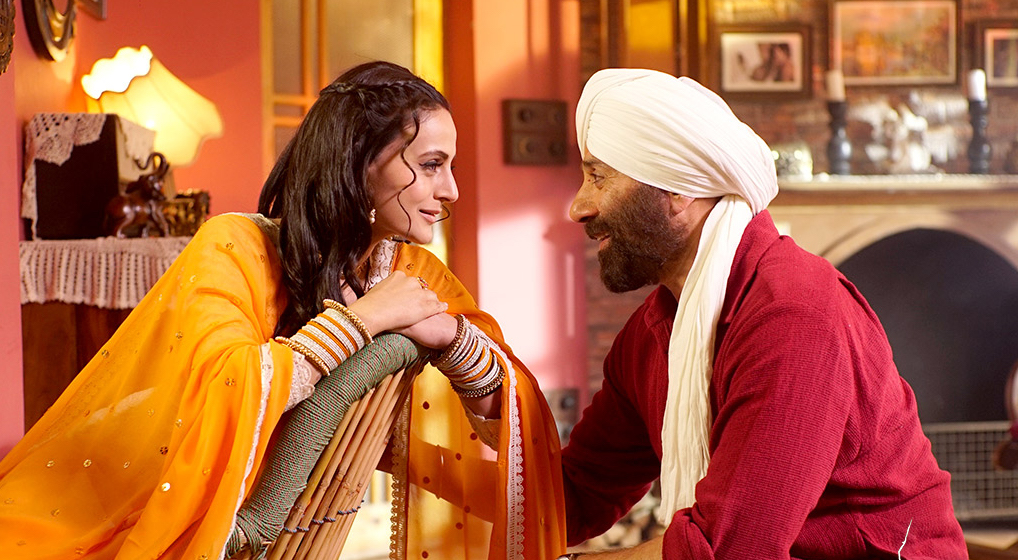
Looking at the reception and box office trajectory of Gadar 2 in India, one can’t help but notice certain similarities with the summer’s surprise smash-hit in the U.S., Sound of Freedom. Both are films that more progressive, educated elites have rejected on political and artistic grounds. In the case of Gadar 2, detractors deem the movie Islamophobic, objectionably nationalistic, and shamelessly nostalgic for a brand of traditionalism that has gone out of vogue. This has especially been the case among the Indian diaspora in the West, where grosses and bookings have been comparatively moderate relative to the film’s domestic haul. In the case of Sound of Freedom, the movie has been labeled conspiratorial, fearmongering, and a distraction from the real causes of its harrowing subject, child trafficking. But as the global liberal media has gone to great lengths to discredit these films, both have become absolute sensations in terms of admissions. Gadar 2 is now the second-highest grossing Hindi film ever released in India, with an outside chance of unseating the top dog, this year’s Shah Rukh Khan-starrer Pathaan.
Of course, unlike Sound of Freedom, Gadar 2 is also a nostalgia play, coming 22 years after its blockbuster predecessor (the story itself is set 17 years later). One might be tempted to call it “long-awaited,” but there was little about the first film that suggested a sequel beyond its box office success. And unlike last year’s American megahit Top Gun: Maverick, this was not a follow-up that the lead actor had teased for years; on the contrary, Sunny Deol was a bit hesitant about reprising arguably his most iconic character, Tara Singh. But the new installment spares no opportunity to relive the glory of the first film. In fact, both of its major musical numbers – “Udd Jaa Kaale Kaava” and “Main Nikla Gaddi Leke” – are simply rearrangements of the songs from the original Gadar: Ek Prem Katha. We also spend an unusually long amount of time viewing clips recapping the first movie at the beginning of this one.
Tamil Movie Review: Jailer succeeds on star power, despite underwhelming twists
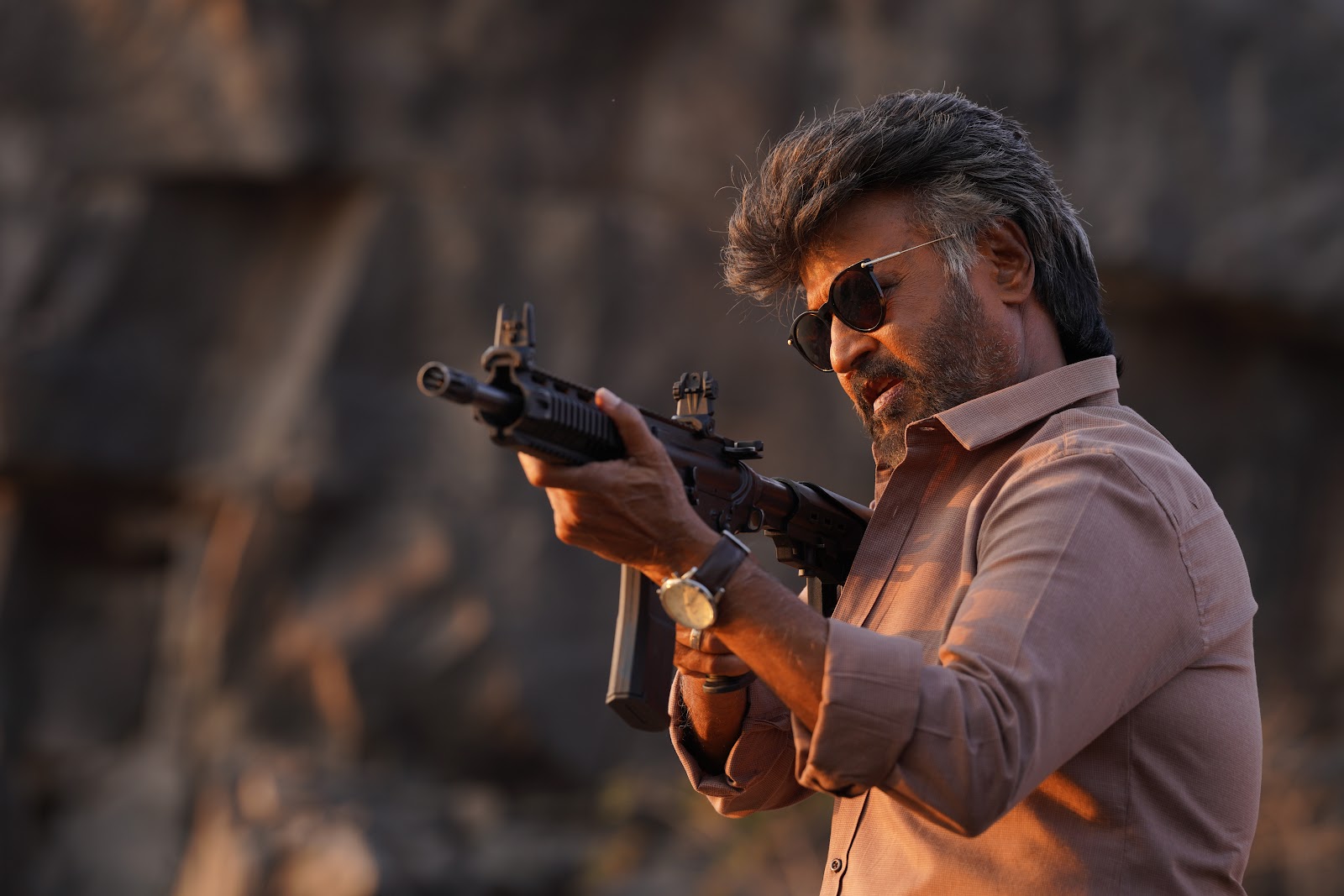
Before Jailer, I had never seen a single movie starring Rajinikanth before, but one need not have even heard of any of the Tamil movie industry legend’s 150+ previous credits to know that he is a superstar. The film makes it aggressively clear just what a force this man is, nearing self-parody in the sheer number of slow-motion shots it features of the hero arriving in each scene. It also seeks to afford his thick-rimmed glasses the same iconic motif status as Indiana Jones’ bullwhip or Dirty Harry’s .44 magnum; apparently, Rajinikanth only needs corrective lenses to be able to kick ass. Through such explicit stylistic pronouncements, it feels like writer/director Nelson is introducing Rajinikanth to the entire world at the ripe age of 72, with Kollywood films like Jailer receiving broader distribution than ever before, just as much as he is engaging in fan service for the actor’s loyal following. In other words, he’s welcomely catching the rest of us up.
With an even slightly lesser star, this strategy easily could have backfired, coming across as cheesy and over-the-top. But much like Liam Neeson in the first Taken and Keanu Reeves in John Wick, Rajinikanth has the sheer level of magnetism required to sell the filmmaker’s balls-to-the-walls vision with a surprising level of internal credibility. We don’t bat an eyelash as this 72-year-old takes down hordes of men half his age – somehow, it feels positively logical. And what a sight it is to watch him do it; in much the same way that Top Gun Maverick did in the U.S. last year, Jailer reminds audiences what a true movie star looks like. Even as the film’s plot descends into complete nonsense – and boy does it ever – you’re completely transfixed by Rajinikanth as Muthuvel Pandian, the police pensioner who comes out of retirement to avenge his dead son.
Hindi Movie Review: Rocky Aur Rani Kii Prem Kahaani soars on infectious characters, sputters on sloppy politics
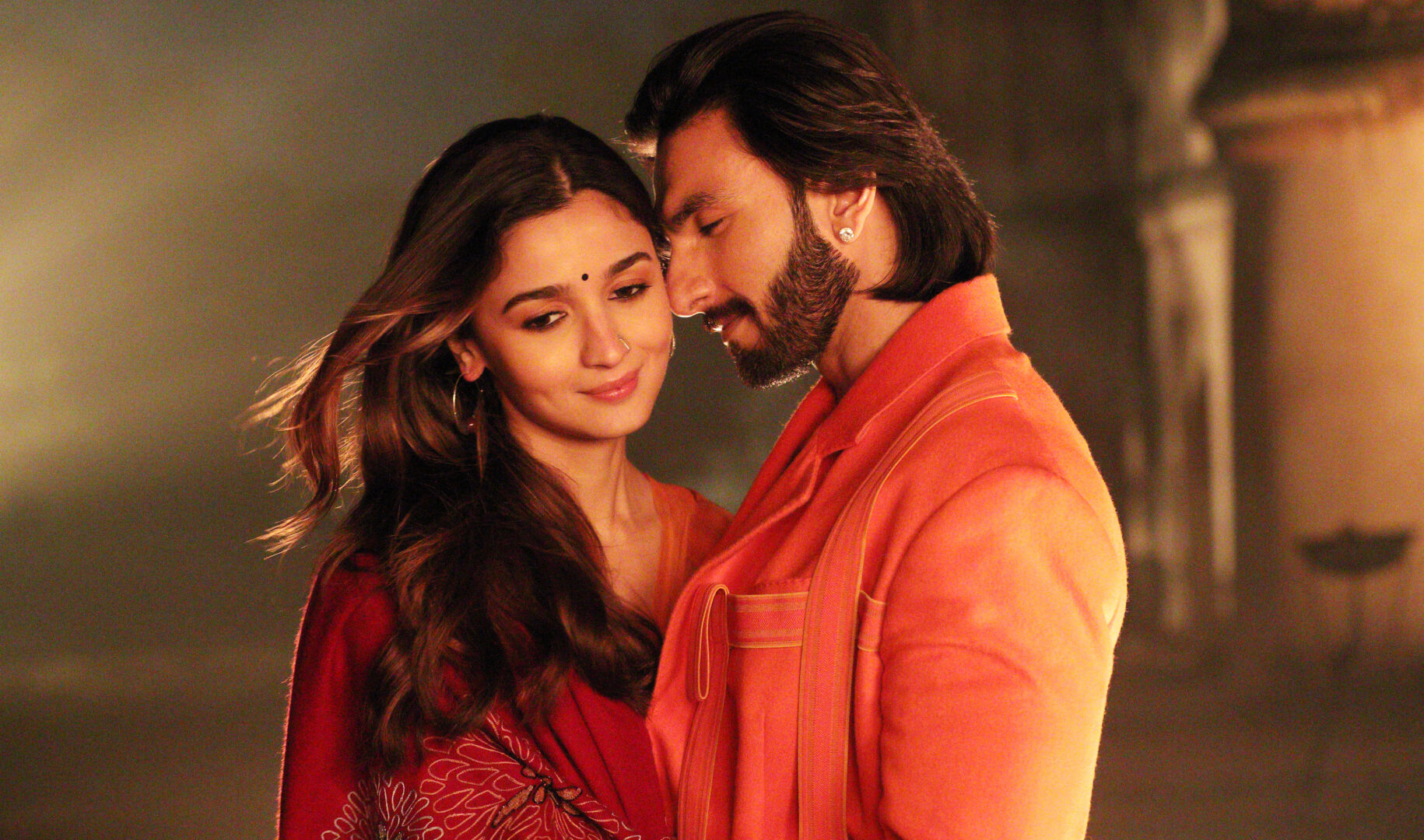
There is such an intoxicating energy to the first half – and especially the first third – of Rocky Aur Rani Kii Prem Kahaani (in English, “Rocky and Rani’s Love Story”) that it’s damn near impossible to resist in the early going. Telling an age-old story of opposites attracting with goofy aplomb, this latest directorial effort from megaproducer Karan Johar feels like a Bollywood-infused throwback to the golden era of early-2000s Hollywood rom-coms. With a seemingly effortless, high-energy style and two irresistibly charismatic lead performances by Ranveer Singh and Alia Bhatt, the film flies by until the intermission point.
Only at the movies are we willing to suspend disbelief to the extent that we buy into a romance between characters as seemingly mismatched as Singh’s Rocky and Bhatt’s Rani, but there’s something distinctly pleasurable about believing that such a pairing could actually happen. Or really, that these leads – so endearing but also so fabricated – could exist in the natural world. We meet the two characters in introductions so cheesy-delicious, they could sell them at Little Caesars. Rocky, an intellectually vacant but well-meaning Punjabi heir to a packaged laddoo fortune, romps around a club with a shirt that seemingly won’t button, while women of all ages drool at his feet. Rani, a bohemian-raised Bengali television journalist, takes down a chauvinist politician in an on-air interview that would have never been consented to in reality.

